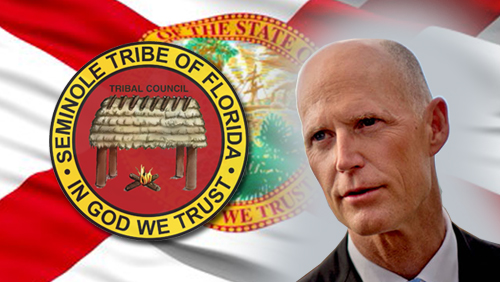A strong possibility has emerged that the state of Florida would not renew a key provision in its gambling compact with the Seminole Tribe, allowing the state to finally update its outdated gaming laws and open new gambling options for other casino operators.
The Miami Herald reported that because of the positive outlook of the state’s budget, Florida’s lawmakers could use that as leverage and ultimately reject the estimated $116 million revenue pot it stands to get from the Seminole tribe as part of their 2010 agreement.
Destination resort casinos in the state have often argued that the state could gain more from expanding their businesses rather than sticking to its compact and extending the tribe’s monopoly to run blackjack tables and other banked card games.
Seminole tribe has made its argument that it can guarantee nine-figure revenues for the state, for as long as it receives exclusivity on blackjack, baccarat, and chemin de fer at five of its casinos—one of the compact provisions, with a 15-year expiration date, giving the tribe a virtual monopoly outside Miami-Dade and Broward.
But casinos in the state, specifically the eight ones in Miami-Dade and Boward counties, are pushing lawmakers to scrap the compact altogether so they can begin offering the games that have eluded them for years.
The sole authority to negotiate the compact lies in the shoulders of Florida Governor Rick Scott but he also needs legislative approval to renew, revise, or drop the compact altogether. Doing so would mean getting enough votes from the legislation, which will undoubtedly open up a lobbying free-for-all from all sorts of sectors tied to the gambling industry.
With the current compact set to expire on July 31, 2015, the next few months could turn into a bonanza of discussions regarding the future of the gaming industry in Florida. Some lawmakers, including Republican Bill Galvano, believes that “it’s not out of the realm of possibility that the governor and Legislature end up doing nothing on the compact.”
